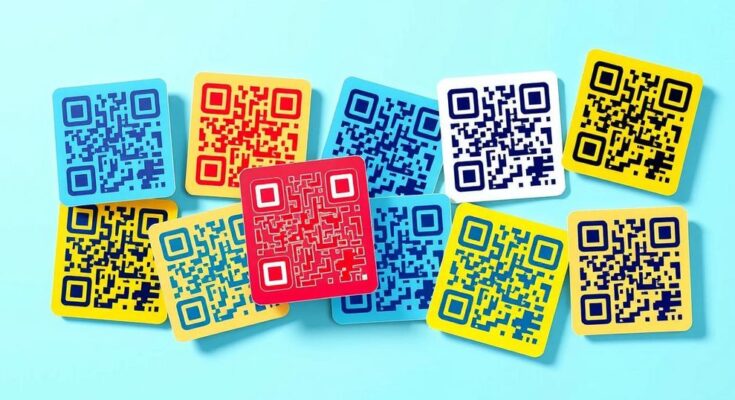Malaysia has achieved the second highest global adoption rate of QR code payments at 61.5%, following China at 67.4%. The growth is fueled by advancements in fintech and the adoption of DuitNow QR, which simplifies transactions for consumers and businesses alike. However, a careful balance is necessary to ensure that traditional payment methods remain accessible to all, particularly for rural communities and older individuals.
Malaysia has made remarkable strides in digital payment systems, achieving second place globally in QR code payment adoption, with a rate of 61.5%, trailing closely behind China’s 67.4%. The nation has surpassed other prominent markets, including the United States and the United Kingdom. This trend reflects a fundamental shift in consumer purchasing behaviors, particularly in shopping malls and local markets during recent events such as the Ramadhan bazaar, where QR payments are ubiquitous.
The widespread utilization of QR codes can be attributed to several pivotal factors, including convenience, advances in fintech, and support from the government. The DuitNow QR system has been particularly influential, enabling businesses of various sizes to adopt QR payments seamlessly. As Malaysia’s national QR standard, it consolidates multiple e-wallets under one code, simplifying transactions for consumers and retailers alike.
With increasing support from banks and e-wallet providers for DuitNow QR, the ease of conducting transactions has spurred significant growth. The ease of QR codes eliminates the need for costly payment terminals, allowing vendors to print and display codes effortlessly. This has been particularly advantageous during the COVID-19 pandemic, which expedited the demand for touchless payment solutions.
Since its inception in 2019, DuitNow QR has experienced exponential growth, with merchant registrations exceeding 2 million, significantly outpacing traditional point-of-sale systems. In total, the system has facilitated approximately 360 million transactions, amounting to RM 14.6 billion, largely driven by small businesses, which account for 80% of the DuitNow QR user base.
Despite these advancements, caution is warranted regarding the potential transition to a fully cashless society. An overemphasis on digital payments may alienate certain demographics, particularly in rural areas and among older generations who may prefer cash transactions. The delicate balance between embracing digital solutions and accommodating those who rely on traditional payment methods is essential for inclusive growth in Malaysia’s financial landscape.
As QR payment systems continue to evolve, individuals should remain adaptable. The convenience of scanning a code instead of using cash is undeniable; however, it is critical to ensure that all segments of society can engage with emerging technologies without feeling disenfranchised.
In summary, Malaysia’s ascent to the second position in global QR code payment adoption illustrates significant progress in digital finance, driven by innovations like DuitNow QR and robust governmental support. The growth of QR payments has reshaped commerce and enhanced user convenience. Nonetheless, there is a pressing need to balance cashless initiatives with the realities faced by those still dependent on cash, ensuring inclusivity as the nation advances further toward a digital future.
Original Source: fintechnews.my




